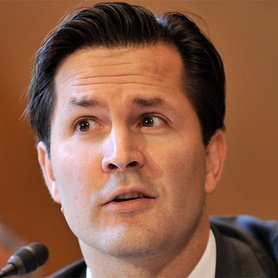Public Health Threats and Pandemics
The Global Erosion of Trust and Democracy and Its Implications for Health and Societies
Project Expert

Bloomberg Chair in Global Health; Senior Fellow for International Economics, Law, and Development; and Director of the Global Health Program
About the Project
Well-functioning democracies create a virtuous cycle. The government is trustworthy, citizens recognize it as such, and respond by cooperating with its policies. That cooperation enables government to deliver, further extending that trust. The converse, however, is also true. In dysfunctional democracies, political polarization and looming collective action challenges make it harder for governments to perform successfully. Polarization makes it difficult for people to agree on basic facts concerning government performance, presenting a formidable barrier to the rapid restoration of trust. Reported levels of trust in government and among citizens are declining in many democracies, especially in the United States. This decline had devastating consequences in the COVID-19 pandemic, where low-trust societies performed significantly worse than their counterparts, but it has broader implications for health and societies as well. The Project on the Global Erosion of Trust and Democracy examines the global erosion of trust and democracy and its implications for how the United States pursues better health at home and abroad.
Events
-
The differences in U.S. life expectancy are so large it’s as if the population lives in separate Americas instead of one.
-
-
-
-
The United States struggled with COVID-19, but some states managed to keep deaths and infections relatively low without shutting society down or ignoring the crisis.
-
-
-
-
-
-
-
-
-
-
-
-
-
-
-
-
Democracy does not die in the darkness so often anymore. It dies in the light, one election at a time, with voters embracing the populists and autocrats who promise to cut the red tape and deliver th…
-
-
-
-
Democracy has played little role in the recent history of global health, but new research published in the Lancet shows democracy is becoming more important as the health needs of low- and middle-income nations shift from infectious diseases to noncommunicable diseases.
-